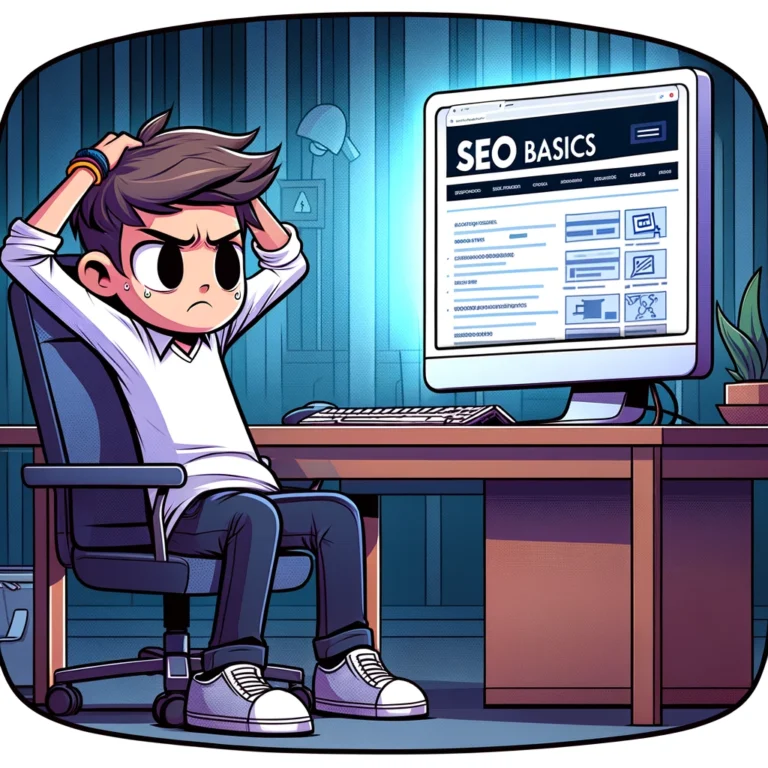In today’s digital landscape, social media is not just a tool for socializing but a pivotal element in the strategic toolkit of search engine optimization (SEO). While the direct correlation between social signals and SEO rankings is a subject of ongoing debate, the indirect benefits are undeniable and multifaceted. This article delves into how social media influences SEO and how you can harness its power to enhance your website’s search engine visibility and ranking.
Understanding the Connection
Indirect Impact on SEO Rankings
Although social media does not directly influence SEO rankings, its impact is significant through several indirect channels. The essence of SEO is visibility and traffic, both of which are substantially enhanced through effective social media engagement.
Enhanced Content Distribution
Social media platforms are powerful channels for content distribution. They provide a stage to share, promote, and amplify your content, reaching an audience far beyond your immediate followers. Every share, like, and comment increases your content’s reach, potentially leading to increased traffic to your website. This traffic is noticed by search engines and can lead to higher rankings.
Link Building Opportunities
High-quality, shareable content tends to attract backlinks. When your content is shared across social networks, it gains visibility that can lead to other sites linking back to it. These backlinks are crucial for SEO as they signal to search engines that your website is a credible source of information.
Boosting Brand Recognition and Trust
A strong social media presence builds brand recognition and trust. When users frequently see your brand associated with helpful and informative content, they’re more likely to think of you as a leader in your field. This enhanced brand recognition can translate into more searches for your brand on search engines, which can improve your rankings for non-branded keywords.
Strategies to Leverage Social Media for SEO
To fully exploit the potential of social media in boosting your SEO efforts, you need a structured approach that aligns with your overall marketing strategy.
Consistent Content Creation
Creating consistent, high-quality content is fundamental. Your content should aim to engage your target audience and encourage them to share your posts. This not only drives direct traffic but also increases the likelihood of gaining backlinks.
Engage with Your Audience
Engagement goes beyond posting content. Responding to comments, participating in conversations, and encouraging user-generated content can all increase engagement and visibility. This also helps in building a community around your brand, fostering loyalty and repeat visits.
Optimize Social Media Profiles
An often-overlooked aspect of social media in SEO is profile optimization. Ensure your profiles are complete and utilize keywords strategically. This makes them discoverable not just on social platforms but also through search engines.
Use Visuals and Videos
Visual content like images and videos are highly engaging and shareable. Platforms like Instagram and YouTube can be used to great effect to reach a broader audience. Moreover, videos can significantly increase the time spent on site by visitors, a metric that positively impacts SEO.
Monitor Performance and Adapt
Utilizing tools to monitor the performance of your social media content is essential. This data can help refine your strategy, focusing on what works best for engaging your audience and driving traffic. Regularly updating your approach based on analytics is key to staying relevant and visible.
While social media does not directly impact SEO rankings, its role in modern SEO strategies is crucial. By enhancing content distribution, increasing brand visibility, and building digital authority, social media can significantly influence your SEO efforts. Implementing thoughtful, strategic social media practices is indispensable for anyone looking to enhance their online presence and search engine rankings.

Advanced Social Media Strategies for SEO Enhancement
Optimize for Social Sharing
Creating content that is easily shareable on social media can amplify its reach and impact. This involves not just the content itself, but also incorporating social sharing buttons directly on your website and blog posts. These buttons encourage visitors to share content effortlessly, increasing potential traffic and visibility to new audiences.
Leverage Hashtags Strategically
Hashtags are not just trendy—they are powerful tools for increasing the visibility of your social media content. Using relevant, targeted hashtags can help you reach beyond your existing followers and tap into a broader audience interested in specific topics. This increased exposure can indirectly affect your site’s SEO by attracting more traffic and potential backlinks from diverse sources.
Integrate Social Media into Your Website
Integrating your social media feeds into your website can keep your content dynamic and encourage more interactions. This integration can take many forms, such as embedding Twitter feeds, Facebook posts, or Instagram galleries. This not only enhances user engagement but also signals to search engines that your website is active and current, which could positively impact your SEO.
Encourage User Reviews and Interactions
User reviews on social media and Google My Business can significantly influence consumer behavior and SEO. Encouraging satisfied customers to leave positive reviews can boost your credibility and attract more business. Additionally, interacting with reviewers and addressing concerns shows that you value customer feedback, which can enhance trust and loyalty.
Real-Life Applications and Case Studies
Case Study 1: Small Business Growth through Instagram
A small boutique, specializing in handmade crafts, leveraged Instagram to increase their online visibility. By posting daily, using specific hashtags related to their products, and engaging actively with their followers, they saw a substantial increase in website traffic. This, coupled with occasional backlinks from craft blogs featuring their posts, resulted in a noticeable improvement in their search engine rankings.
Case Study 2: Using Twitter to Boost Event Attendance and Website Traffic
An event management company used Twitter to promote an upcoming conference. By creating a dedicated event hashtag, engaging with influencers to retweet their content, and providing live updates during the event, they managed to greatly expand their reach. The increased brand visibility led to a higher number of registrations through their website, directly benefiting their SEO by increasing both direct and search traffic.
Further Integrating Social Media and SEO
Develop a Cross-Platform Content Strategy
To maximize the SEO benefits of your social media efforts, develop a content strategy that complements all platforms. For instance, what is posted on Instagram can be adapted and expanded for Facebook or Twitter, keeping in mind the unique audience and format of each platform. This ensures a cohesive brand message across all channels.
Monitor SEO and Social Media Metrics Jointly
To truly understand the impact of your social media activities on SEO, closely monitor metrics from both arenas. Use tools like Google Analytics to track website traffic originating from social media platforms. Likewise, use social media analytical tools to gauge engagement rates and their correlation with spikes in website activity. This holistic view will help you refine your strategy over time.
Conclusion
Social media has transformed from a purely communicative tool into a vital component of effective SEO strategies. While it may not directly influence search rankings, its power to enhance brand visibility, drive traffic, and create link-building opportunities is undeniable. By integrating social media wisely and monitoring its impact on SEO, businesses can harness its full potential to boost their online presence.



